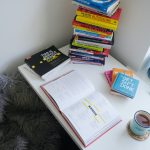A lot of people tend to say that grades are a good measure of intelligence. It is not necessarily true. Grades are also reflection of how effective a student’s studying strategies is.
We all want to study effectively, but just studying hard can only get you so far. To really get you to that butter zone, you need to learn how to study smart.
Even if they are study methods that may not seem that useful in the so-called real world, they actually are lifelong skills you acquire that become second nature when you do it effectively and consistently enough during your tenure as a student.
The ability to retain information and the sheer work ethic, conscientiousness, and discipline required to be a good student carries over to everything else in life because working hard and smart is truly the main benchmark for success.
Now that you may be pumped up enough to do this, here are some last minute studying tips that can help you increase your chances in getting a good grade in a test.
Always Stay Positive
There is absolutely no way you can do it well if you don’t think you can do it well. The mind is a powerful thing indeed, and whatever it puts its focus on can often manifest itself in the real world.
If you’re absolutely sure that you will fail, then you may actually fail and you’ll have a lot more reasons to feel sorry for yourself. Don’t fall for that trap and stay positive.
Study in Time Blocks with Brief Breaks
The effective use of time is a universal principle because time waits for no one and your body is a slave to it. You can’t blast through 12 hours of studying and expect your brain and body to hold on. Retention works best when conditioned in short bursts.
You can make use of a modified pomodoro method, 50 minutes of study with 10 minute breaks for 2-4 sets or until you’ve gotten everything you need to study in your head.
Make Good Notes
Having notes that hold the most important concepts is invaluable. Formulae, key terms, lists, and so on can be written down on flash cards by hand so you can review them quickly and easily.
Also, the act of writing and re-writing them down helps your brain retain and recall that information.
Do Dry Runs
You can only get good at something by doing it over and over again, and the same can be said with tests. Give yourself practice tests with time limits to help you get good at recalling information under pressure, which can help minimize mental blocks over time.
It helps to do run-throughs to rehearse your brain into recalling information. As simple and corny as that may sound to some, its effectiveness can never be overstated.
Use Memorization Techniques
If you’re having trouble in recalling a particular chunk of information that seems to not stick, try memorization techniques like using mnemonics and other cues to make it stick in your head.
Break it down to its most essential bits and then try to memorize it with some sort of foolproof acronym or visual hint.
Vocalize If You Must
Aside from writing and re-writing things down, you can also read your study material out loud. This works for some people who are more receptive to auditory learning, so perhaps it can work for you.
Actually Get Some Sleep
Letting your brain rest is a crucial step in learning as it is the best time for the brain to process everything it has been put through.
It is important for preserving memory and learning new things, so you have to get your 7-9 hours in each night. It is understood that sometimes you have to twist and bend your circadian rhythm quite a bit to get school work done, but you can never fully ignore the necessity of sleep.
Things to Avoid
Hoarding study materials does not mean you have an advantage. You still have to study them, and having more of them actually makes it harder for you.
Relying too much on highlighters is also a sign of bad study habits. Just because you’ve highlighted what you think are the necessary things doesn’t mean you’ll be able to remember them.
Spending too much time building a study nest is unnecessary and even harmful. It’s true that you should have the best possible environment for studying, but obsessing over the study nest is a distraction that keeps you from actually studying.












